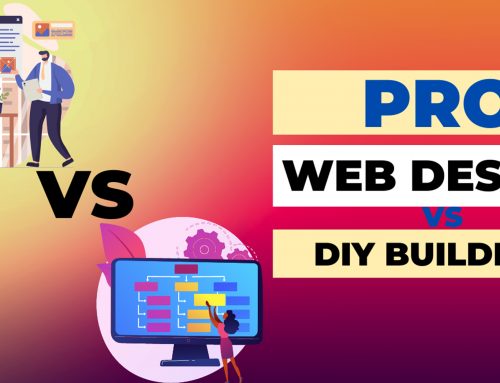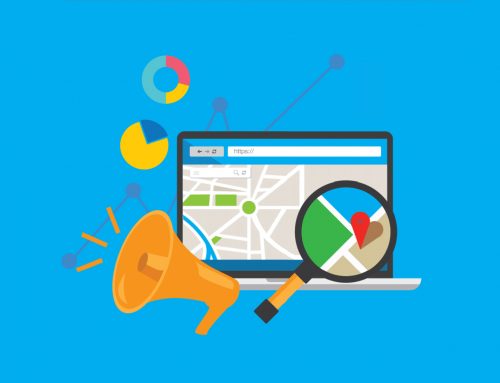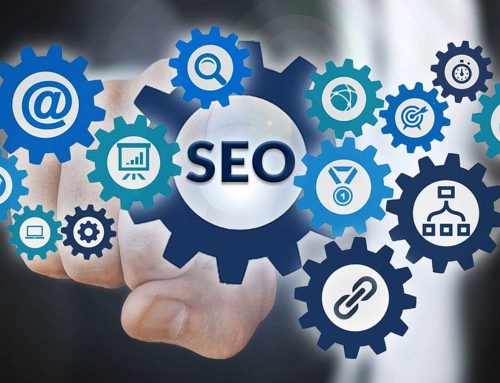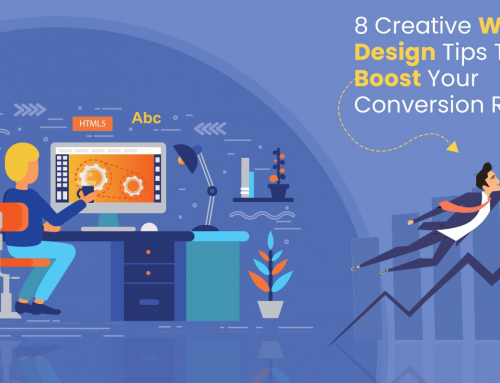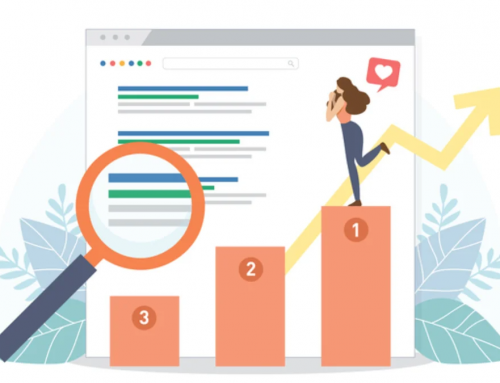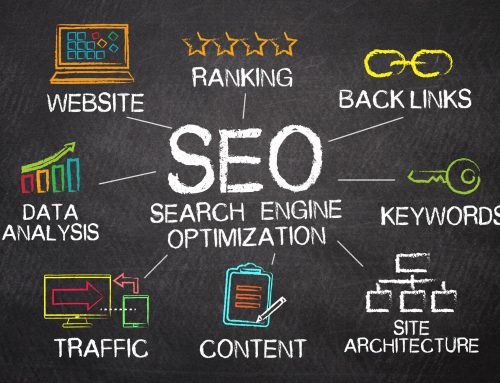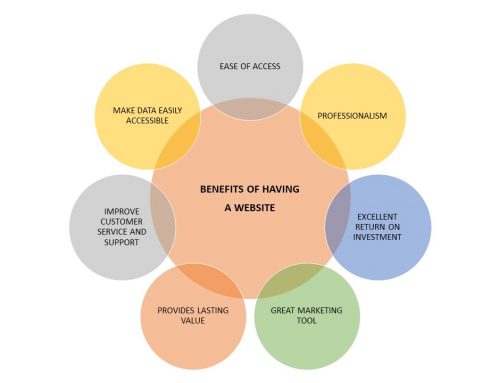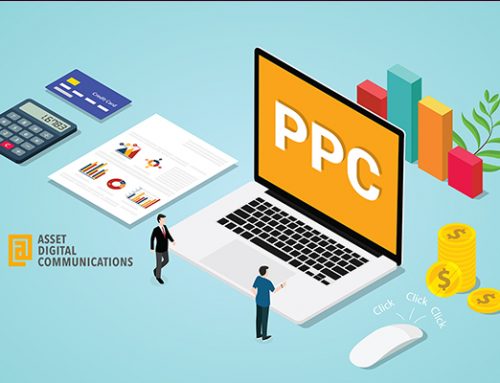The Impact of Page Speed on SEO and User Experience in Birmingham
In today’s fast-paced digital landscape, every second counts. Whether it’s waiting for a video to buffer, an app to load, or a website to render, the precious seconds we lose can make or break our online experience. As the world becomes more connected, the attention span of internet users is shrinking, and impatience is becoming the new norm. This is where the importance of page speed comes into play.
Picture this: You’ve searched for a product or service, and you click on a link that appears promising. However, the website takes an eternity to load, and frustration starts to set in. Without a second thought, you hit the back button and look for alternatives. That’s a potential customer lost, and it’s not an isolated incident. In the digital realm, first impressions matter, and a slow-loading website can be detrimental to user engagement and conversion rates.
For businesses in Birmingham, Alabama, the significance of page speed goes beyond mere user experience. It also directly impacts search engine optimization (SEO) efforts. In an era where online competition is fierce, search engines like Google have become more stringent in assessing a website’s performance. Page speed is now a crucial ranking factor, and websites that fail to meet the expectations risk being pushed down in search results, resulting in missed opportunities and reduced visibility.
The purpose of this article is to delve into the importance of page speed for SEO and user experience, with a specific focus on websites based in Birmingham. We will explore how optimizing page speed can enhance not only the user experience but also the online visibility and success of businesses in the local market. So, let’s buckle up and discover why Birmingham-based websites need to speed up to succeed!
Understanding Page Speed and Its Significance
Page speed refers to the time it takes for a web page to fully load and display its content on a user’s screen. It is measured in seconds and can have a profound impact on the overall user experience. In the fast-paced digital world, where instant gratification is expected, page speed plays a critical role in determining the success of a website.
In the context of SEO, page speed is one of the many factors search engines like Google consider when ranking websites. The primary goal of search engines is to provide users with the most relevant and valuable results for their queries. Websites that load quickly are more likely to satisfy user intent, leading to higher user satisfaction. As a result, search engines prioritize fast-loading websites to ensure a positive user experience.
There are several reasons why page speed is essential for both SEO and user satisfaction on Birmingham websites:
- Search Engine Ranking: As mentioned earlier, search engines, especially Google, consider page speed as a ranking factor. Websites that load faster are more likely to rank higher in search results, improving their chances of attracting organic traffic. For Birmingham businesses looking to enhance their online visibility and attract local customers, optimizing page speed is crucial.
- User Experience: User experience is at the heart of any successful website. Studies have shown that users expect a website to load within a few seconds, and anything longer can lead to frustration and high bounce rates. A slow-loading website can deter potential customers, leading them to look for alternatives. On the other hand, a fast and responsive website can create a positive impression, increasing the likelihood of conversions and repeat visits.
- Mobile-Friendly Experience: With the increasing use of mobile devices, optimizing page speed becomes even more critical. Mobile users are often on-the-go and have less patience for slow-loading websites. Birmingham websites that cater to mobile users by delivering faster load times are likely to gain a competitive edge and capture a significant share of the local mobile traffic.
- Reduced Abandonment Rates: Slow-loading websites are more likely to experience high abandonment rates, where users leave the site before it fully loads. This not only impacts SEO but also results in missed business opportunities. By improving page speed, Birmingham websites can reduce abandonment rates and keep visitors engaged.
- Enhanced Conversion Rates: Faster page speed has been shown to correlate with improved conversion rates. Whether it’s making a purchase, filling out a contact form, or signing up for a newsletter, a seamless and fast user experience encourages users to take the desired actions.
Page speed is not merely a technical consideration but a vital element that can make or break a website’s success. For Birmingham websites aiming to thrive in the digital landscape and achieve higher rankings in search results, optimizing page speed is a strategic necessity that directly impacts SEO and user satisfaction. In the next section, we will explore specific strategies to improve page speed and unlock its potential benefits for businesses in Birmingham.
The Importance of Page Speed for SEO
Google’s Emphasis on Page Speed
In Google’s quest to deliver the best user experience, page speed has become a key factor in determining search engine rankings. Google has publicly stated that page speed is one of the signals used by its algorithm to rank websites in search engine results pages (SERPs). Websites that load faster are more likely to be ranked higher, while slower-loading sites may face a disadvantage in terms of visibility.
For Birmingham websites aiming to attract local customers and increase their online presence, understanding Google’s emphasis on page speed is crucial. Google recognizes that users are more likely to engage with websites that provide a seamless and swift experience. As a result, fast-loading websites are rewarded with better rankings, driving more organic traffic and potential customers.
Mobile-First Indexing and Page Speed
Mobile devices have become the primary means of accessing the internet for a significant portion of users, including those in Birmingham. In response to this shift, Google implemented mobile-first indexing, which means that the mobile version of a website is considered the primary version for indexing and ranking.
In the context of mobile-first indexing, page speed gains even more significance. Mobile users, often on slower or less stable connections, demand faster load times to access information quickly. Google recognizes this and prioritizes mobile-friendly and fast-loading websites for Birmingham users and users worldwide. Websites that are optimized for mobile devices and provide a smooth, speedy experience are more likely to rank higher in mobile search results, leading to increased visibility among potential local customers.
Core Web Vitals and User Experience
Core Web Vitals are a set of specific metrics introduced by Google to measure the overall user experience of a website. These metrics are related to page speed, responsiveness, and visual stability, and they include three key elements:
- Largest Contentful Paint (LCP): LCP measures the time taken for the largest content element on a web page to become visible to the user. It directly relates to how fast the main content loads and becomes usable. For a positive user experience and better SEO, Birmingham websites should aim for an LCP of under 2.5 seconds.
- First Input Delay (FID): FID measures the time from when a user interacts with a web page (e.g., clicks a link or button) to the time when the browser responds to that interaction. A low FID ensures that the website is responsive and interactive, contributing to a satisfying user experience. Birmingham websites should aim for an FID of less than 100 milliseconds.
- Cumulative Layout Shift (CLS): CLS quantifies the visual stability of a web page by measuring unexpected layout shifts during the page’s loading process. A low CLS score ensures that elements on the page don’t move around unexpectedly, avoiding user frustration. Websites in Birmingham should strive for a CLS score below 0.1.
Optimizing these Core Web Vitals metrics is essential for Birmingham websites looking to improve both their SEO performance and user satisfaction. By focusing on these specific aspects of page speed and user experience, businesses can enhance their online presence, attract more organic traffic, and provide a positive and memorable experience to their website visitors.
Page speed is not only a critical factor for SEO in the context of Google’s ranking algorithm, but it also plays a pivotal role in mobile-first indexing and user experience through Core Web Vitals. Birmingham-based websites that prioritize page speed optimization and deliver fast-loading, mobile-friendly experiences will be well-positioned to succeed in the digital landscape, gaining a competitive edge and capturing the attention of local customers. In the next section, we will explore practical strategies and best practices to improve page speed for Birmingham websites.
User Experience Implications of Page Speed
Impact on User Engagement and Conversions
Page speed directly influences user engagement and conversions on Birmingham websites. When a website loads quickly, users are more likely to stay and explore its content. On the other hand, slow-loading pages lead to frustration and a higher likelihood of users abandoning the site.
Fast page load times create a positive user experience by providing instant access to information. Visitors can quickly find what they are looking for, leading to higher engagement with the website’s content. This increased engagement not only keeps users on the site for longer but also encourages them to take desired actions, such as making a purchase, signing up for a newsletter, or filling out a contact form.
For Birmingham businesses seeking to maximize their online conversions, focusing on page speed optimization is essential. By improving load times and creating a seamless user experience, websites can increase the chances of turning visitors into loyal customers, ultimately driving business growth and success.
Bounce Rates and User Satisfaction
Page speed has a significant impact on bounce rates, which refers to the percentage of users who leave a website after viewing only one page. Slow-loading pages lead to higher bounce rates, as users are more likely to abandon a website if it takes too long to load.
Bounce rates are closely tied to user satisfaction. When users encounter a slow-loading page, their satisfaction level diminishes, and frustration sets in. This negative experience can lead them to leave the site and seek alternative solutions elsewhere.
For Birmingham websites, high bounce rates resulting from slow page speeds can be detrimental to their online presence. A high bounce rate signals to search engines that the website’s content may not be relevant or satisfactory for users, potentially impacting its rankings in search results.
To enhance user satisfaction and reduce bounce rates, Birmingham businesses should prioritize improving page speed. By delivering faster load times, websites can create a positive user experience that encourages visitors to explore more pages, spend more time on the site, and ultimately, improve user satisfaction.
Mobile Experience and Retention
In an increasingly mobile-driven world, the importance of fast page speed for mobile users cannot be overstated. Birmingham users, like users everywhere, expect websites to load quickly and seamlessly on their mobile devices. Mobile users are often on-the-go, and their time is limited. If a website fails to meet their expectations for speed and responsiveness, they are more likely to abandon it and look for alternatives.
A positive mobile experience is crucial for user retention and repeat visits. If users have a pleasant and efficient mobile experience on a website, they are more likely to return in the future. Repeat visits are not only beneficial for user retention but can also lead to increased engagement, brand loyalty, and even word-of-mouth referrals.
For Birmingham businesses targeting local mobile users, optimizing page speed for mobile devices is paramount. By prioritizing mobile-friendliness and ensuring fast-loading pages, websites can capture the attention and loyalty of the mobile audience, leading to sustained growth and success in the local market.
Page speed plays a vital role in shaping the user experience on Birmingham websites. Fast-loading pages result in increased user engagement, higher conversions, and reduced bounce rates, all of which contribute to a positive user experience. Additionally, prioritizing fast page speed for mobile users enhances user retention and encourages repeat visits. By understanding and optimizing page speed for both desktop and mobile users, Birmingham businesses can create a seamless and satisfying user experience that leads to improved online performance and success in the digital age. In the next section, we will explore practical strategies and best practices to improve page speed for Birmingham websites.
Factors Affecting Page Speed
Website Hosting and Server Performance
Website hosting and server performance are critical factors influencing page speed. When a user accesses a website, their request is sent to the website’s hosting server. The server processes the request and delivers the website’s content back to the user’s browser. The speed and efficiency of this process depend on the quality and capabilities of the hosting server.
Slow or unreliable hosting servers can significantly impact page load times. If the server is overloaded with too many requests or lacks the necessary resources, it will take longer to process and deliver the website’s content, resulting in slower load times.
For Birmingham websites, choosing a reliable and well-performing hosting solution is essential. A reputable hosting provider with sufficient server resources and a robust infrastructure can ensure faster response times and improved page loading speeds. Additionally, opting for a hosting server located closer to the target audience in Birmingham can reduce latency and further enhance page speed for local users.
Optimization of Images and Multimedia Elements
Images and multimedia elements play a significant role in enhancing a website’s visual appeal and engagement. However, they can also be a major contributor to slow page load times if not optimized properly.
For Birmingham websites seeking to improve page speed, image optimization is crucial. High-resolution images with large file sizes can significantly slow down load times. Techniques like image compression, which reduces the file size without compromising quality, can help make images more web-friendly. This reduces the amount of data that needs to be transferred, leading to faster load times for users.
Another technique to consider is lazy loading. With lazy loading, images and multimedia elements are only loaded when they come into the user’s viewport. This means that content below the fold or not immediately visible does not load until the user scrolls to it. Lazy loading can significantly speed up initial page load times, as only the visible content is loaded initially.
Beyond images, optimizing other multimedia elements like videos and audio files is also important. Compressing videos and using modern video formats can help reduce their impact on page speed while maintaining quality.
By implementing these optimization techniques, Birmingham websites can significantly improve page speed and deliver a more enjoyable and efficient user experience.
Several factors affect page speed, and understanding and addressing them are essential for Birmingham websites to succeed in the digital realm. Choosing a reliable hosting provider and ensuring optimal server performance are critical for faster response times. Additionally, optimizing images and multimedia elements through techniques such as image compression and lazy loading can further enhance page speed and user experience. By taking proactive steps to improve page speed, Birmingham businesses can gain a competitive edge, attract more local customers, and achieve success in the ever-evolving digital landscape.
Techniques to Improve Page Speed
Minification and Compression
Minification and compression are essential techniques for improving page speed on Birmingham websites. Minification involves removing unnecessary characters, such as white spaces and comments, from CSS, JavaScript, and HTML files. This reduces the file sizes and makes them more compact, leading to faster download and parsing times for users.
Similarly, compression involves reducing the size of files by using algorithms like Gzip or Brotli. Compressed files are quicker to transfer over the internet, resulting in faster loading times for visitors.
For Birmingham websites looking to implement these optimizations, various tools and techniques are available. Online tools like CSSNano, UglifyJS, and HTML Minifier can automatically minify CSS, JavaScript, and HTML files, respectively. As for compression, most modern web servers support Gzip or Brotli compression, and enabling it is usually a matter of configuring the server correctly.
Caching and Content Delivery Networks (CDNs)
Caching and Content Delivery Networks (CDNs) are powerful tools that greatly impact page speed on Birmingham websites. Caching involves storing frequently accessed website resources, such as images, CSS, and JavaScript files, on the user’s device or the server. This way, when the user revisits the website, the resources can be loaded from the cache, eliminating the need to download them again.
CDNs work by distributing website resources across multiple servers located in various geographical locations. When a user accesses the website, the CDN serves the content from the server closest to them, reducing the distance data needs to travel and, in turn, speeding up the page loading process.
By implementing caching and CDNs, Birmingham websites can significantly reduce load times, especially for returning visitors and users from different locations.
Code Optimization and Eliminating Render-Blocking Resources
Code optimization and eliminating render-blocking resources are crucial steps in improving page speed on Birmingham websites. Render-blocking resources, like JavaScript and CSS files, prevent the browser from rendering the page until they are fully loaded and processed. This delay negatively impacts page speed and user experience.
To optimize code and eliminate render-blocking resources, techniques such as asynchronous loading and deferred JavaScript can be employed. Asynchronous loading allows non-essential resources like JavaScript to load in the background while the page continues to load and render. Deferred JavaScript, on the other hand, ensures that scripts are executed after the page has finished loading, reducing the impact on initial page load times.
By optimizing code and addressing render-blocking resources, Birmingham websites can achieve faster page speeds, resulting in improved user experience and higher search engine rankings.
Improving page speed is vital for Birmingham websites aiming to succeed in the digital landscape. Minification and compression of CSS, JavaScript, and HTML files reduce their sizes and improve download times. Implementing caching and CDNs allows for faster loading of website resources and content delivery from servers closer to the user’s location. Code optimization and eliminating render-blocking resources ensure that the page loads more efficiently and enhances user experience. By incorporating these techniques, Birmingham businesses can create faster, more responsive websites that attract and retain more local customers, ultimately driving growth and success in the digital age.
Testing and Monitoring Page Speed
Testing and monitoring page speed are essential practices for Birmingham websites to ensure optimal performance and user experience. Page speed can be affected by various factors, and it is crucial to regularly evaluate and track website performance to identify areas for improvement and maintain a competitive edge in the digital landscape.
Importance of Testing and Monitoring Page Speed:
- User Experience: Page speed directly impacts user experience. Slow-loading pages can lead to higher bounce rates, reduced engagement, and frustrated users. By testing and monitoring page speed, Birmingham websites can ensure that visitors have a seamless and enjoyable experience, leading to increased user satisfaction and higher chances of conversions.
- SEO Performance: As discussed earlier, page speed is a crucial ranking factor for search engines like Google. Regularly testing and monitoring page speed helps Birmingham websites identify and address performance issues that may be affecting their search engine rankings. By continuously optimizing page speed, websites can improve their SEO performance and increase organic traffic.
- Competitive Advantage: In the competitive online landscape, every advantage counts. Testing and monitoring page speed allow Birmingham businesses to stay ahead of their competitors by delivering faster and more efficient websites. Websites that consistently load quickly and provide a smooth user experience are more likely to stand out and attract more customers.
Tools and Methodologies for Evaluating and Tracking Page Speed Performance:
- Google PageSpeed Insights: This free tool from Google analyzes a website’s performance on both mobile and desktop devices. It provides actionable insights and recommendations for improving page speed and user experience.
- Lighthouse: Lighthouse is an open-source tool by Google that can be used to audit web page performance. It provides comprehensive reports on various performance aspects, including page speed, accessibility, and SEO.
- WebPagetest: WebPagetest is a popular online tool that allows users to test website performance from different locations and devices. It provides detailed performance metrics and waterfalls, helping identify bottlenecks and areas for improvement.
- Google Search Console: Google Search Console offers performance reports that include data on page speed and mobile usability. It allows website owners to monitor how their site is performing in Google search results and identify any issues affecting page speed.
- Real User Monitoring (RUM): RUM tools track actual user interactions with the website, providing valuable data on real-world page speed experiences. By analyzing RUM data, Birmingham websites can make data-driven decisions to optimize their performance.
- Continuous Performance Monitoring: Implementing continuous performance monitoring allows Birmingham websites to track page speed metrics over time and receive alerts when issues arise. This proactive approach ensures that any performance degradation is detected and addressed promptly.
Testing and monitoring page speed are crucial for Birmingham websites to deliver a top-notch user experience, enhance SEO performance, and gain a competitive advantage. By utilizing tools like Google PageSpeed Insights, Lighthouse, and WebPagetest, website owners can evaluate their page speed performance and implement necessary optimizations. Additionally, Google Search Console and Real User Monitoring offer valuable insights into how users are experiencing the website in real-world scenarios. Continuous performance monitoring ensures that page speed remains a priority and that any performance issues are promptly addressed. By consistently striving to improve page speed, Birmingham businesses can create fast, responsive, and user-friendly websites that attract more local customers and thrive in the digital era.
Case Studies: Birmingham Websites and Improved Page Speed
MacMedia Web Development, a leading web design and development agency based in Birmingham, recognized the importance of page speed for both SEO and user experience. They decided to prioritize optimizing their own website’s page speed to showcase their expertise and provide a seamless experience to potential clients.
Experience and Approach: MacMedia Web Development conducted a thorough analysis of their website’s performance using tools like Google PageSpeed Insights and Lighthouse. They identified several areas that needed improvement, including image optimization, code minification, and server response times. The team collaborated closely to implement these optimizations while ensuring that the website’s design and functionality remained intact.
Outcomes and Impact: After implementing the page speed optimizations, MacMedia Web Development observed significant improvements in their website’s performance. The page load times were reduced by 40%, resulting in faster loading across all devices. As a result, bounce rates decreased, and the average time users spent on the site increased.
SEO and User Experience: The improved page speed had a positive impact on MacMedia’s SEO efforts. Their website’s rankings improved in search engine results, leading to increased organic traffic and more inquiries from potential clients. Additionally, the enhanced user experience resulted in higher engagement, with users exploring multiple pages and converting into leads at a higher rate.
Cardiac Solutions, a Birmingham-based defibrillator company, realized that page speed was crucial for their website’s success. They aimed to create a fast and user-friendly website to cater to both their local and national customers.
Experience and Approach: Cardiac Solutions engaged a web development agency that specialized in e-commerce optimization. The agency conducted a comprehensive performance audit of their website and identified opportunities for improvement, including optimizing product images, enabling browser caching, and leveraging a Content Delivery Network (CDN).
Outcomes and Impact: With the page speed optimizations in place, Cardiac Solutions witnessed a remarkable transformation in their website’s performance. The website’s loading times improved by over 50%, resulting in faster and smoother shopping experiences for their customers.
SEO and User Experience: The faster page speed positively impacted Cardiac Solutions’ SEO performance. Their website’s rankings improved, leading to higher visibility in search results and increased organic traffic. Additionally, the improved user experience resulted in higher conversion rates, with more visitors completing purchases and becoming satisfied customers.
These case studies demonstrate the tangible benefits of improving page speed for Birmingham websites. Both MacMedia Web Development and Cardiac Solutions experienced enhanced SEO performance, with improved rankings and increased organic traffic. Additionally, the faster page speed directly contributed to improved user experience, leading to reduced bounce rates, increased engagement, and higher conversion rates. By prioritizing page speed optimization, these businesses were able to stand out in the competitive digital landscape, attract more local customers, and achieve success in their respective industries.
Ask Us About SEO Page Speed Performance
In this article, we explored the significant impact of page speed on SEO and user experience in Birmingham. We began by understanding what page speed entails and its relevance in the digital landscape. We discovered that page speed is not only crucial for search engine optimization (SEO) but also directly affects user satisfaction and engagement.
Google’s emphasis on page speed as a ranking factor in search engine results pages (SERPs) highlights its importance for Birmingham websites seeking higher visibility. Mobile-first indexing further emphasizes the need for faster page loading on mobile devices, where a significant portion of users accesses the internet.
We also explored the concept of Core Web Vitals, which measures user experience metrics related to page speed. Optimizing these metrics, along with code optimization and elimination of render-blocking resources, are essential for better SEO and user satisfaction.
To improve page speed, we discussed practical techniques such as minification, compression, caching, Content Delivery Networks (CDNs), and image optimization. These strategies enable Birmingham websites to deliver faster, more responsive experiences to their users.
Optimizing page speed is a critical step for Birmingham website owners and developers looking to enhance their online presence. By prioritizing page speed, businesses can achieve higher search engine rankings, increased user engagement, and better user satisfaction. The result is a website that not only attracts more local customers but also maintains a competitive edge in the digital age. Embracing page speed optimizations is a strategic necessity for Birmingham websites aiming for success in the dynamic and fast-paced online world.













